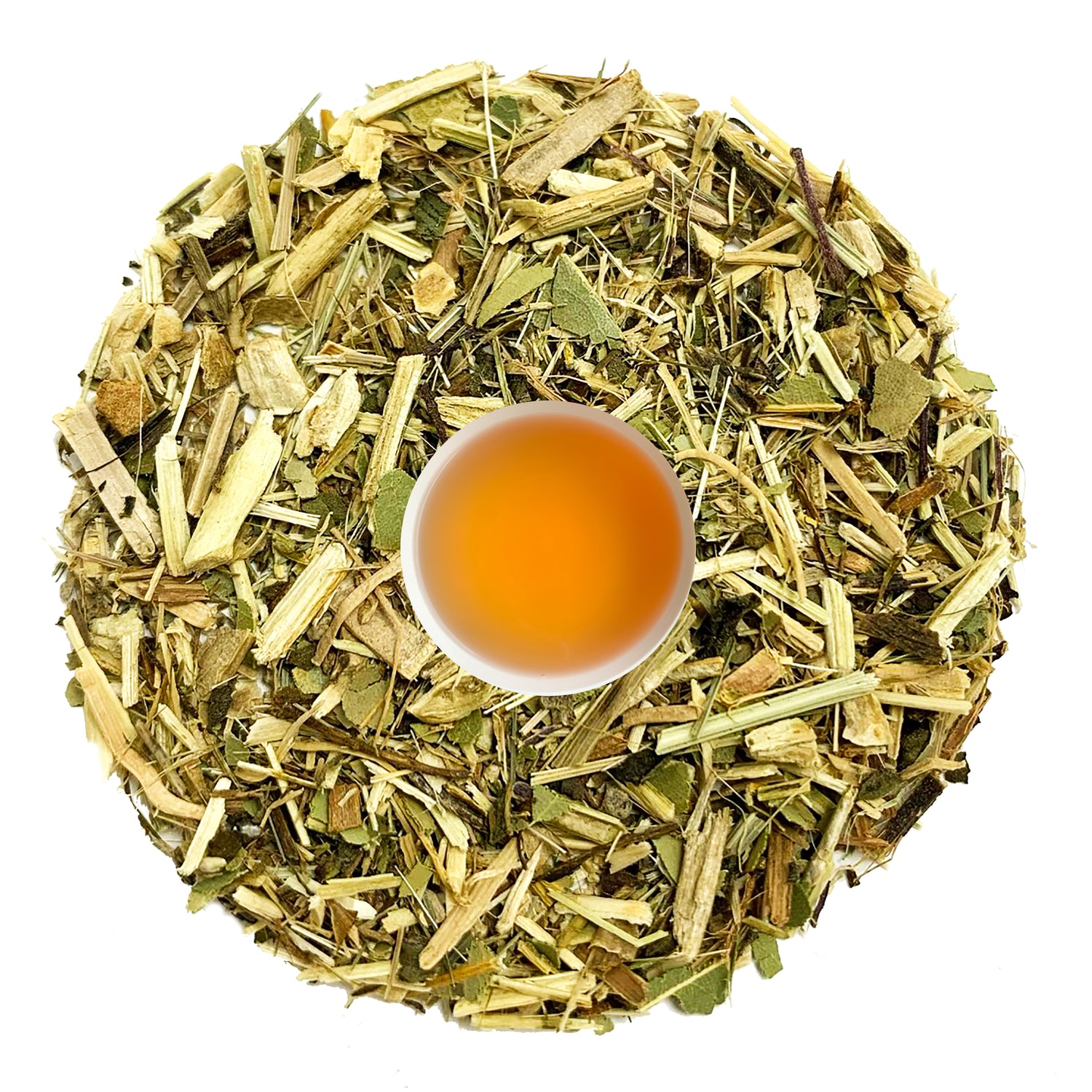
Empty Stomach Green Tea: Gut Risks You Need to Know
Green tea has long been hailed as a super drink, loved for its rich antioxidant content, metabolism-boosting properties, and digestive benefits. It’s a beverage that promises a lot: from helping you lose weight, reduce inflammation, and improve heart health, to even giving you glowing skin. So, it makes sense that green tea would be at the top of your list when it comes to a morning drink, right?
But what happens when you drink green tea on an empty stomach? Does it deliver on its promises, or does it fall short?
If you’ve ever reached for a cup of green tea first thing in the morning and felt suddenly queasy or irritable, you’re not imagining it. Green tea — despite its numerous health benefits — can actually do more harm than good when consumed on an empty stomach.
So, should you really be drinking green tea first thing in the morning? The answer is complicated. Let’s dive into the science of it all and figure out what’s really going on in your stomach.
What Happens When You Drink Green Tea on an Empty Stomach?
1. It Increases Stomach Acid
Green tea contains tannins, which are natural compounds that give the tea its slightly astringent taste. While these tannins are great for antioxidant purposes, they increase the production of stomach acid. Normally, stomach acid helps break down food and aids digestion, but when you drink green tea on an empty stomach, your stomach has nothing to digest, leading to excess acid sloshing around in your stomach.
What this means for you:
- Acid irritation — When there’s no food in your stomach to neutralize the acid, it can irritate your stomach lining, which can cause discomfort.
- Nausea — This excess stomach acid may leave you feeling queasy or lightheaded.
- Acid reflux — If you suffer from acid reflux or GERD (gastroesophageal reflux disease), the increase in stomach acid from drinking green tea on an empty stomach can worsen the symptoms.
Who’s at Risk?
- Those with sensitive stomachs
- People suffering from acid reflux or GERD
- Anyone with a history of ulcers or gastritis may experience increased irritation.
If you belong to any of these groups, your stomach might be more susceptible to the adverse effects of green tea when it’s consumed without food. In that case, it’s best to avoid sipping your morning green tea on an empty stomach and instead enjoy it after a meal to reduce the chances of irritation.
2. It Can Leave You Feeling Lightheaded or Dizzy
Green tea is packed with catechins, powerful antioxidants that can have numerous health benefits. But while catechins are fantastic for your body in many ways, they can also interfere with your body’s ability to absorb iron — especially if consumed on an empty stomach.
Iron is a crucial mineral for your health, helping to transport oxygen in your blood and maintain energy levels. When you drink green tea without food, the catechins in the tea bind to iron and reduce its absorption, which can leave you feeling weak and tired.
What this means for you:
- Dizziness — If your iron levels are already low, drinking green tea on an empty stomach can lead to dizziness or lightheadedness.
- Fatigue — Without enough iron, your body struggles to produce hemoglobin, which is responsible for carrying oxygen in your blood, resulting in lower energy levels.
- Paleness and cold extremities — Low iron levels can also cause you to feel cold, especially in your hands and feet, due to reduced circulation.
If you’re someone who already suffers from low iron levels or has a diet that’s lacking in iron-rich foods, drinking green tea first thing in the morning might exacerbate these issues. In this case, try consuming green tea after meals, when your body is already busy digesting food and is better equipped to handle the catechins in the tea.
3. It Can Slow Digestion Instead of Helping It
One of the most common beliefs surrounding green tea is that it helps jumpstart digestion. After all, drinking a warm beverage in the morning is said to encourage bowel movements and improve digestion, right? Well, not necessarily.
While it’s true that green tea has many digestive benefits, it’s not as effective on an empty stomach. When consumed on an empty stomach, green tea can actually slow down the digestive process, making you feel bloated and sluggish rather than energized and light.
Why does this happen? Green tea contains polyphenols — another type of antioxidant. While polyphenols are known for their health benefits, they can inhibit the action of certain digestive enzymes, temporarily slowing down your gut’s ability to break down food. This can lead to feelings of bloating, discomfort, or sluggish digestion.
So, while green tea does have digestive benefits, drinking it on an empty stomach may make it harder for your digestive system to operate efficiently. To avoid this issue, make sure to drink green tea after you’ve eaten to give your body a better chance to break down food and fully absorb the nutrients.
4. The Caffeine Hit Can Be Too Strong
Although green tea contains less caffeine than coffee, it still has enough to affect your system when consumed on an empty stomach. Caffeine stimulates the central nervous system, giving you a quick boost of energy. However, when consumed without food, it can cause an energy spike followed by a crash.
What this means for you:
- Jitters — Drinking green tea before eating can cause shaky hands or a racing heart, particularly for those sensitive to caffeine.
- Headaches — Low blood sugar combined with caffeine can lead to headaches or migraines.
- Energy crashes — You may feel an initial boost of energy, but after the caffeine wears off, you could experience a significant energy dip.
If you’re sensitive to caffeine, you might want to delay your first sip of green tea until after breakfast. This will help mitigate some of the unwanted side effects like jitteriness or headaches.
When Should You Drink Green Tea for the Best Results?

Now that we know drinking green tea on an empty stomach isn’t ideal, let’s talk about when it’s best to drink it. Timing can make all the difference, especially if you’re trying to maximize the benefits of green tea without experiencing any side effects.
Best Times to Drink Green Tea
- After Breakfast (Mid-Morning): Drinking green tea after a meal is ideal for digestion and metabolism. Your stomach acid will be in balance, and the green tea will aid digestion rather than irritate your gut.
- Before a Workout: Green tea is great for fat-burning and boosting endurance, making it an excellent pre-workout beverage. Drink it 30–60 minutes before exercise for the best results.
- Afternoon (Between Lunch and Dinner): Drinking green tea between meals helps keep energy levels stable, without interfering with sleep. It’s a great option for a mid-afternoon pick-me-up.
- Avoid Drinking It First Thing in the Morning: Green tea is more likely to irritate your stomach and disrupt digestion if consumed without food.
- Avoid Drinking It Right Before Bed: Even though green tea has less caffeine than coffee, it can still disrupt your sleep, especially if consumed too close to bedtime.
How to Drink Green Tea Without the Side Effects

If you’re committed to incorporating green tea into your routine but want to avoid the potential pitfalls, here are some tips for drinking green tea without the side effects:
1. Pair It With Food

The simplest solution to avoid stomach irritation is to consume green tea after eating. Even a small snack — like a piece of toast, some fruit, or a handful of nuts — will do wonders for protecting your stomach from excess acid.
2. Limit Your Intake to 2–3 Cups Per Day

Green tea is wonderful, but too much of a good thing can lead to side effects. Drinking too much green tea can increase stomach acidity, contribute to dehydration, and interfere with the absorption of certain nutrients. Aim to consume no more than 2–3 cups of green tea per day.
3. Try Different Varieties
Not all green teas are created equal. Some types of green tea are gentler on the stomach and lower in caffeine. For instance:
- Sencha — A lighter Japanese variety of green tea.
- Bancha — A lower-caffeine option that’s easier on digestion.
Experiment with different types of green tea to find the one that works best for you.
4. Add Lemon or Honey
Both lemon and honey can enhance your green tea experience while providing additional health benefits. Lemon can improve the absorption of antioxidants, and honey can add natural sweetness and soothe the stomach.
Green Tea Benefits and Risks: The Full Picture

Health Benefits
- Supports heart health — Green tea has been linked to lower cholesterol levels and improved blood vessel function.
- Aids weight loss — Green tea can boost metabolism and help burn fat.
- Boosts brain function — Thanks to its caffeine and amino acid content, green tea can improve focus and cognitive function.
- Rich in antioxidants — Green tea is packed with polyphenols, which fight oxidative stress and aging.
- Aids digestion — When consumed properly, green tea can support healthy digestion and reduce bloating.
Potential Risks
- Stomach irritation — Drinking green tea on an empty stomach can irritate your stomach lining, leading to discomfort.
- Iron absorption — Green tea can hinder your body’s ability to absorb iron if consumed in excess or without food.
- Caffeine-related side effects — Too much green tea can lead to jitters, headaches, and crashes.
- Slow digestion — Drinking green tea on an empty stomach may disrupt your digestive system rather than aid it.
Final Verdict: Should You Start Your Day With Green Tea?
If you love green tea, just don’t drink it on an empty stomach. Instead:
- Have it after breakfast for better digestion.
- Drink it before a workout for a metabolism boost.
- Enjoy it in the afternoon for sustained energy.
Green tea is an incredibly healthy beverage, but timing matters. Drink it wisely, and your body will thank you!
FAQs
1. Can green tea replace coffee in the morning?
Yes and no. Green tea has less caffeine than coffee, so it provides a steady focus boost without the jolt or crash of coffee.
2. Is green tea good for digestion?
Yes, but only when consumed after a meal. Drinking it on an empty stomach might slow digestion rather than speed it up.
3. Can I drink green tea before bed?
Not recommended. Even small amounts of caffeine can disrupt sleep, so it’s best to avoid green tea before bedtime.
4. How much green tea is safe to drink daily?
Stick to 2–3 cups of green tea per day to avoid potential side effects like stomach irritation or interference with nutrient absorption.
5. What’s the best way to sweeten my green tea?
Honey and lemon are great natural options that enhance the taste and offer additional health benefits. Avoid sugar to keep your green tea as healthy as possible.










